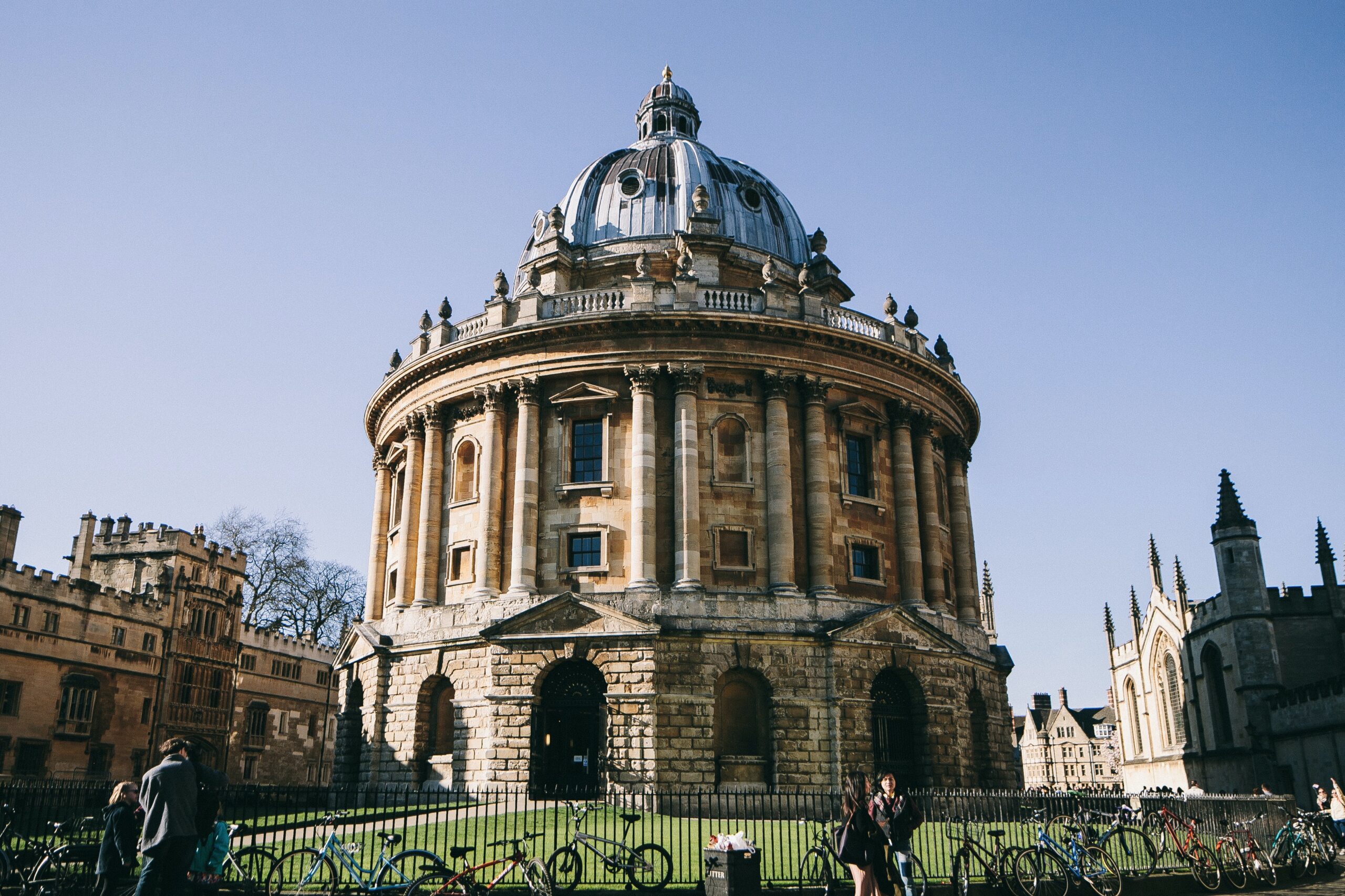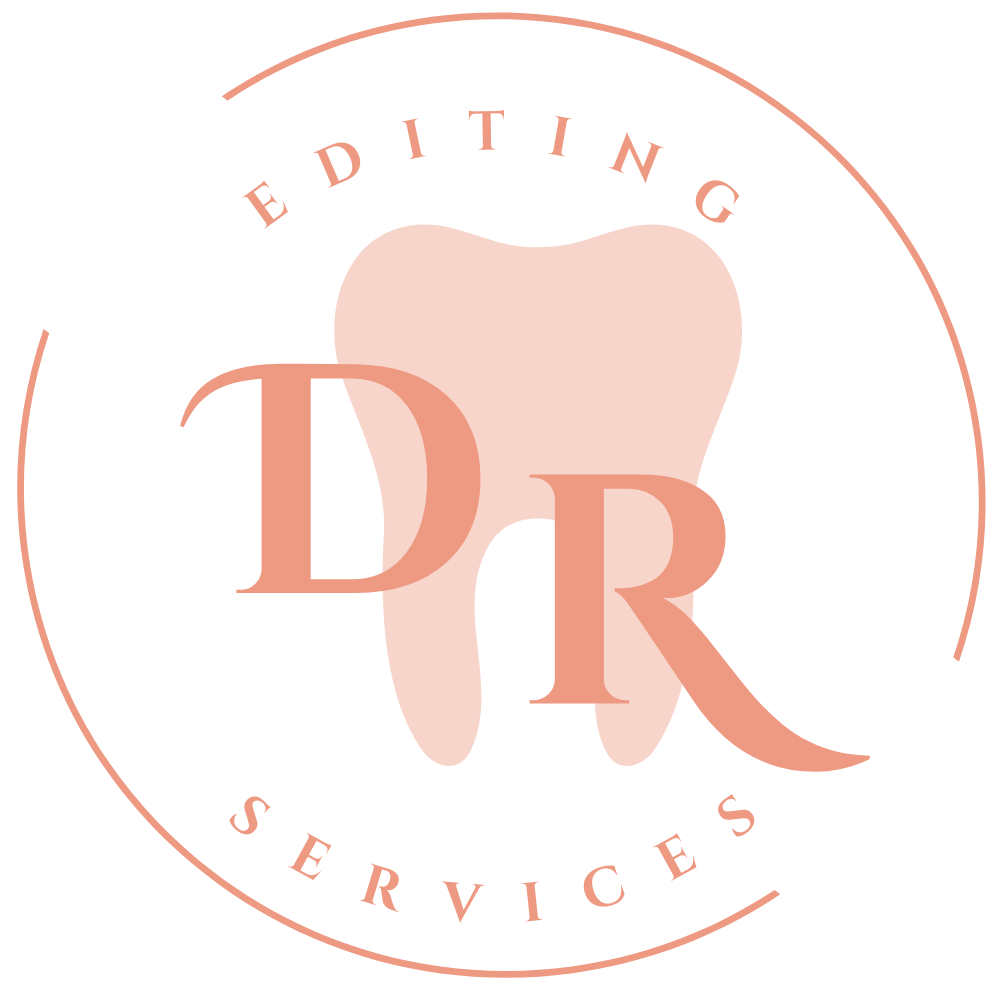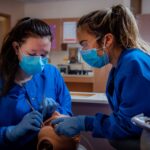
Medicine Personal Statement Oxbridge Examples
Are you tired of rewriting your draft so many times? Getting different opinions and conflicting advice?
I helped three medical applicants to get offers from prestigious medical schools in the UK. Including an offer from Oxford University, King’s College London, and the University of Bristol. I worked one-to-one with each student, adding quality content, transition sentences, and improving the flow by working on each paragraph.
Read on to find 3 winning techniques to make your medicine personal statement stand out to Oxbridge and Russel Group Universities.
Why is the admissions process so subjective?
Admission tutors will skim through an essay you have spent weeks working on, even months!
Why?
They get thousands of applications, half of which are pretty much the same. Same boring introduction and similar stories and experiences. They’re tired of reading the same thing.
Just imagine being an admissions tutor at Oxbridge – It’s a Friday afternoon, and it’s piping hot. There’s no air conditioning in your admissions office, and you are exhausted from checking hundreds of personal statements on UCAS. You’ve already decided which applicants you want to interview, but you still have two or three more statements to read.
Is your application worth that last spot in the interview pile? Will they remove someone else from the interview list to make space for you?
That’s not exactly how it works, but the concept is the same! One medicine personal statement will be remarkable to one tutor and boring to the next. It is incredibly subjective. You want to do everything possible to maximise your chances of getting in.
Contents
- How do you write a Personal Statement for Medicine? – Oxbridge Applicants
- 3 Winning techniques
- Personal Statement Medicine Example 1 – Accepted at King’s College London
- Example 2 – Accepted at Oxford University for Medicine
- Example 3 – Accepted at the University of Bristol for Medicine
How do you write a Personal Statement for Medicine? - Oxbridge Applicants
One that makes an admission tutor pick up the paper and say, “Wow. This is the perfect candidate.”
This guide will teach you how to sprinkle your magic into your draft. Blowing the Oxbridge admission tutor out of the water instantly puts you at the top of their list. Sounds impossible, right?
Well, I am sharing with you the key ingredients to the best medical personal statement recipe.
3 Winning Techniques for your Medicine Personal Statement
These 3 winning techniques are used time and time again in successful medicine personal statements. I have helped over 500 students to gain admission based on these techniques and a few other secret top tips. It’s proven to work, and you’ll see examples of this technique in the statements below.
Technique 1 – Storytelling
One thing we have in common with the admissions committee is that we are human, which means we are subject to emotions. According to a psychological study, evoking emotions will instantly make your story relatable. You will use the art of persuasion to convince them to pick you.
Take the admission tutor on your journey by creatively setting the scene. Read creative writing to get ideas and prompts to help you get started—emotions ties in with sounds, visual imagery, smells, and feelings. You want to activate these parts of their brain psychologically. This is a proven technique used extensively in marketing and selling.
Don’t focus on a sob story; we do not want them sobbing that Friday evening in the office. You want them to feel intrigued, delighted, sympathetic, and motivated by what you have to offer.
How to pick a story?
Start with your most memorable experience, the best or worst experience you have had, whether you watched a physician deliver bad news or handle an angry patient.
You can even set a scene when describing your hobby—an exciting tennis match or winning a football tournament. Everything can be related back to the course. Start with your MOST powerful sentence.
Technique 2 – Answer this: Why You?
Don’t beat around the bush and tempt them into reading more. Get straight to the point. What if they put you in the rejection pile after only reading the introduction? Your introduction must be CONCISE. Tell them why YOU. Don’t make them read another 3 paragraphs to find out what you are applying for or that you’ve shadowed one of the best maxillofacial surgeons in the world. If your experience is worth writing about, then tell them right away.
Just grab their attention and worry about the rest later.
Technique 3 – Ace the Conclusion
End the personal statement by reasserting the points in your introduction and summarising everything you have done. Trust me, by the end of the essay, they will forget.
Remind them of your top 3 experiences and tell them your goal and how you hope to achieve it. Avoid sounding egotistic here. Humbly express what you wish to do in the future.
Avoid this cliché: “I hope to impact the world through medicine.” It signals alarm bells. How will you make a difference while at university or as a qualified doctor? They don’t want false promises! Just be genuine to sound authentic.
How can you use these 3 techniques?
Read the medical personal statement examples which capture all 3 winning techniques!

Medicine Personal Statement Example - Offer from King's College London
“The summit of the French Alps offered picturesque views of the crystal-clear glacier lakes. The icy wind picked up and chilled me to the bone. Sweat droplets formed on my father’s forehead as he ripped off his gloves and uppercut the air in celebration. As the stormy weather began to pick up, we began to descend immediately. I planned the route through treacherous conditions and successfully reached the camp uninjured. Despite not being directly related to medicine, this life-changing experience proved that my resilience and determination were enough to achieve any goal I set myself.
Unlike many, medicine was not something I was dead set on. Based on my career advisor’s advice, I acquired work experience in a hospital. I suppose she picked up on my compassionate and ambitious nature and felt medicine was the right fit for me. In her defence, she was right. I shadowed physicians and saw them diagnose life-changing illnesses, discuss end-of-life care with families, and witnessed the heart-breaking moment a daughter missed her mother’s final moments. On the contrary, these experiences moved me and motivated me to pursue medicine.
The sheer empathy expressed by the doctors made the patients’ healthcare journeys more bearable. You could sense the gratitude when a patient was seen following hours of debilitating pain. Dr Mistry shared the challenging aspects of medicine but was incredibly fulfilled in her role. I was intrigued by the analytical skills needed when using symptoms and diagnostic results to make a management plan. It was the authority the doctor had in being responsible for the patient’s care and leadership to manage the team which inspired me. This ability to attend to needs and tailor care based on their life circumstances was admirable. I knew I wanted to make a difference, and these various aspects truly did match my personality and willingness to serve.
I am an active community member and volunteer with many causes that are dear to me. This began with helping at an animal rescue centre. This was a tough role but incredibly rewarding to help match those searching to foster or adopt. I later acquired a position with Red Cross, familiarising myself with the trauma caused by natural disasters. My involvement led to various certifications, and I led a team of younger volunteers to attend to those affected by severe flooding. I have since followed up with these sufferers, aiding in their insurance claims and searching for new homes. I addressed their concerns and helped in finding resources that suited them. Learning to tailor my communication to help those of various ethnic, religious, and socioeconomic backgrounds was integral to this role. I needed to understand the needs of those I was helping to make a real difference.
Furthermore, I work in a charity shop and regularly build a rapport with customers and help them find items that would interest them. Speaking to one customer led to an opportunity to help out at her mother’s care home, where I was lucky enough to oversee dentists and doctors who attended for home visits. Elderly care was far from straightforward; honestly, it was mentally taxing at times, but I still felt motivated to help. I recognised the challenges the elderly faced in remembering medication and the struggles of those with dementia, forgetting their family’s names. I empathised with family members who visited and helped make them feel comfortable.
My path to medicine has not been traditional. It began in the French Alps, where I recognised my determination to reach a goal, and my medical interests soon became apparent through shadowing. I am fortunate to have gained a comprehensive view of the realities of medicine and am not afraid to step up to the challenge. My desire to serve the community has been a significant part of my upbringing, and I now wish to help the community as a physician in secondary care.“

Medicine Personal Statement Oxbridge - Offer from Oxford University
“Witnessing my mother’s manic episode was genuinely a terrifying experience. As a child, I experienced the trauma of being raised by a mother who was very unwell and required mental health services. Unfortunately, mental health was taboo in my community, and she avoided seeking help when in need. I grew up anticipating when her next episode would be until she was in crisis and ended up in a psychiatric hospital. I was ashamed for feeling like a burden had been lifted. However, this experience was pivotal in my decision to pursue medicine, a career where I could impact patients by breaking down the stigma.
The psychiatrists that diagnosed my mother referred me to the necessary services. I soon learned that she was on the right path to improving, and I was able to have my basic needs met. My life completely changed, and I am grateful for the care they provided and the compassion they showed at the hospital. Despite being young, I was incredibly mature, and the doctors understandably explained the diagnosis, yet I still reached out to Dr Google to understand more. I reached out to mental health charities, where I learned that there was a stigma associated with mental illness, particularly in South Asian communities. I later endeavoured to help other children facing similar challenges to those I encountered.
I spent three years volunteering with ****** charity, learning about safeguarding, consent, and attending to children’s needs. After many years at the charity, the children shared their emotional stories, and I often had to seek advice from the safeguarding lead. My priority was ensuring the children were safe but willing to share their difficulties. My voluntary work geared me towards medicine, particularly psychiatry, and I delved into wider reading to understand the impact psychosis can have.
I am intrigued by the management of such conditions, as it often involves continual monitoring, complex treatment plans and a mixture of psychotherapy combined with pharmacological therapy. The anatomy of the brain and lack of understanding behind the biochemistry leading to mental illness perplexes me. I could grasp a glimpse of life as a physician during my primary care shadowing. As well as helping in administration, record keeping, and attending to patients, I could sit in through many consultations. I observed urgent cases where patients were referred to ambulatory care, and many patients attended with symptoms of depression and anxiety.
Reflecting on this experience, it became more apparent that mental illness is more common than ever due to increased diagnosing and recognition of symptoms. Not only by physicians but primarily by patients who are now more aware and educated on concerning symptoms. I aimed to provide more support to those at my school and led a group of students in organising regular group therapy sessions for us to vent about our studies. Many confided in me following the sessions, sharing their difficulties, and I noticed a few who needed urgent help. Despite only helping a small group, I valued being able to take a leadership role in planning activities and taking charge of organising. It was an enriching role, and I imagine physicians feel the same sense of fulfilment when correctly diagnosing and helping a patient in need.
Bipolar is a complex disorder that negatively impacted many sacred years of my childhood. I was young, impressionable, and desperate to help my mother. This rooted my desire for medicine and led to many experiences. I shadowed in primary care, volunteered with the youth, and led therapy sessions, and I am now one step closer to becoming a physician. Therefore, if fortunate enough to be admitted, I aim to pursue this career and progress into the field of psychiatry, where I can tackle the stigma and treat patients silently suffering like my mother was.”

Winning Medicine Personal Statement - Offer from the University of Bristol
“Desperate to observe the subsequent surgery, I hurried behind the consultant entering the pre-operative room. The scent of hand sanitiser filled the room, monitors beeping, and a patient lay prepared for the life-altering operation. Having spoken to the patient prior to her operation, I recognised the detrimental impact scoliosis had on her quality of life. Not only for her but also for her family. I began to realise the need for full mobility in every moment of our lives, from simply getting out of bed to commuting anywhere. This single experience during my shadowing was marked in my memory. Healthcare practitioners do far more than diagnosing and prescribing – there is an entire multi-disciplinary team dedicated to caring for a patient’s needs. A curiosity for caring for others had drawn me to multiple career options, from working in a care home to being a physician. I honestly had considered all options, but this final shadowing experience captivated me.
Choosing to embark on a course at seventeen has not been straightforward. It was impossible to understand the depths of what a role involves without gaining first-hand experience. Hence, I delved into various opportunities to gauge the necessary attributes required for a role as a physician. My journey began in a care home as an eager volunteer hoping to gain insight into the reality of being a care home nurse. To call it mentally taxing would be an understatement. Nevertheless, I built my resilience from engaging with patients with dementia and their families. I was dedicated to understanding the full effects of dementia on one’s ability to cope. This opened me up to a realm of other interests, such as the anatomical, biochemical, and genetic components contributing to such deterioration. Despite gaining countless skills, I aspired to be directly involved in a patient’s care. I observed a doctor’s outpatient visit to the home. I was immediately impressed by the high level of knowledge and ability to concisely explain a patient’s condition while being empathetic and aware of the family’s emotions.
My care home experience later drew me to shadowing a pharmacist for a week. This provided invaluable insight into pharmacists’ responsibilities, as they often deal with patients with a complex medical background on a concoction of drugs. Knowing the interactions, side effects, and required doses came naturally to them. I was inspired by their extensive knowledge and observed their ability to maintain a patient’s dignity when discussing sensitive topics. I found that patients often turn to pharmacists since COVID-19 has reduced the number of face-to-face visits. The challenge this brought to pharmacists was evident. I hope to bear this in mind as a future physician.
More recently, I arranged to shadow at a primary care facility, my local GP. Each day brought variety and a diverse group of patients and various concerns. Some concerns required simple reassurance, while others required a call to secondary care. I learnt the possible pathways and need for liaison with the local hospital or other practitioners; excellent verbal and written communication proved paramount. My duties involved helping with bookings, administrative responsibilities, reassuring anxious patients waiting for appointments, and following up on referrals. It was initially overwhelming to cope with the workload, but I quickly adjusted and enjoyed the dynamic environment. The pressure to complete my tasks led to me delegating my time based on the task’s priority, similar to a physician who must triage based on urgency.
My collective experiences from shadowing in theatre, primary care, and voluntary work have reaffirmed my passion for the medical field. I have remained committed to my education and hope to continue this determination in medicine. The opportunity to impact patients’ lives through medicine would be invaluable.“
The students who wrote these medical personal statements for Oxbridge first reached out to me because they were strugglingstruggled to put their thoughts together. They had a rough draft with unique experiences but had not written them coherently and engagingly. I helped them to craft their story and evoke emotion from the admission team.
Each applicant successfully received interview invites from all of their universities.
Are you having difficulty writing your personal statement? Then reach out for professional help.



